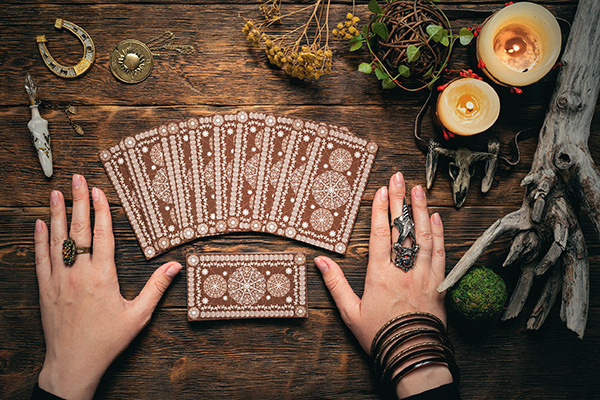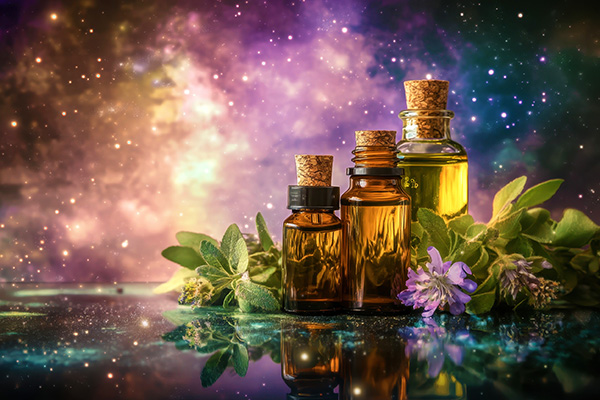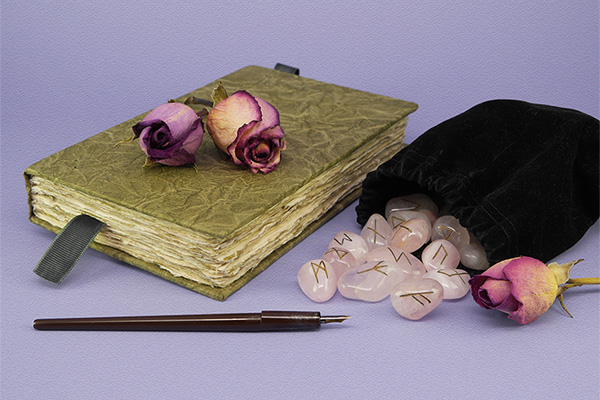oracles
How To Choose Your First Tarot Deck
 Buying your first deck of tarot cards can be daunting, especially for beginners. However, when approached the right way, it can be a magical and enjoyable experience.
Buying your first deck of tarot cards can be daunting, especially for beginners. However, when approached the right way, it can be a magical and enjoyable experience.
I remember when I decided to buy my first deck years ago. I received a flood of recommendations from well-meaning friends and seasoned readers, all eager to point me toward their personal favorites.
True to my rebellious nature, though, I ignored it all. Instead, I followed my intuition.
I visited a cozy metaphysical shop downtown and wandered to the back, where the tarot decks were displayed on a few revolving racks.
One particular deck instantly captivated me. It had an angelic theme, and even though the imagery and Roman numerals weren’t exactly beginner-friendly, I didn’t care. I knew instantly that it was mine.
Even though I was new to Tarot, I had immersed myself in as much knowledge as I could find before purchasing my first deck. I read every book I could get my hands on and spent hours combing through spiritual forums and metaphysical blogs.
The advice I received from seasoned readers, though sometimes conflicting, gave me a broad foundation of ritual practices and deck care.
I was especially drawn to the idea of treating the cards as sacred tools, rather than just objects. So, by the time I brought my new deck home, I already had a sense of how I needed to honor it and energetically align with it.
Why Psychics, Healers And Empaths Use Essential Oils
 Essential oils have long been sacred allies in spiritual and healing traditions around the world. Extracted from the aromatic essence of plants, these oils carry more than just fragrance; they carry the energetic blueprint and vibrational frequency of their botanical origins.
Essential oils have long been sacred allies in spiritual and healing traditions around the world. Extracted from the aromatic essence of plants, these oils carry more than just fragrance; they carry the energetic blueprint and vibrational frequency of their botanical origins.
In spiritual practice, essential oils are potent tools for emotional alignment, energetic cleansing, and deepening our connection to the self, spirit, and earth, far surpassing their role as mere pleasant scents.
Essential oils act as bridges between the tangible and the intangible. They provide sensory cues that encourage relaxation of the body, focus of the mind, and openness of the spirit. While they don’t replace deep inner work or professional guidance, they provide gentle, supportive energy that enhances existing practices.
The use of essential oils in spiritual practices is anything but modern. Prophets, priests, shamans, and oracles across the ancient world worked with aromatic oils and resins as sacred tools to facilitate divine connection, purification, and inner vision.
In ancient Egypt and the Near East, frankincense and myrrh were revered not just for their fragrance, but for their ability to open spiritual gateways. Frankincense, often referred to as “liquid gold,” was burned in temples and used in rites of passage. Myrrh featured in sacred anointing blends and was considered essential for emotional release and spiritual attunement.
From Ancient Mystics To Modern Psychics
 Psychics and mediums have been around since the dawn of human civilization: from the shamans in indigenous cultures, to the oracles of ancient Greece and Rome, the seers and druids of Celtic societies, the sages of ancient China, and the prophets of ancient Middle Eastern cultures.
Psychics and mediums have been around since the dawn of human civilization: from the shamans in indigenous cultures, to the oracles of ancient Greece and Rome, the seers and druids of Celtic societies, the sages of ancient China, and the prophets of ancient Middle Eastern cultures.
Some famous examples include Pythia, the Oracle of Delphi in ancient Greece; the Celtic soothsayer Myrddin Wyllt, also known as Merlin in later Arthurian legends; the Chinese wu (shaman) Jing Fang; Black Elk, the renowned Native American holy man of the Oglala Lakota Sioux people; Isaiah, the renowned prophet of the ancient Near East; and Agastya, the revered Hindu sage and seer.
Throughout human history, in different cultures and societies, there have always been individuals with mystical abilities who held important roles within their communities and served as intermediaries between the physical world and spiritual realms.
They served as conduits of divine wisdom, predicting future events, providing insight into hidden truths, and offering guidance on various matters. They often acted as special advisors to tribal leaders, rulers, and kings, and typically played an important role in the moral and spiritual direction of their people.
The term “psychic” comes from the Greek word psychikos, meaning “of the soul, spirit, or mind.” In Greek mythology, Psyche was the goddess of the soul. Her name literally means “soul” or “breath.” Over time, the term came to encompass aspects of the mind beyond the ordinary.
The True Value Of The Psychic Pathfinder
 Psychics, mediums, channelers, and prophets have been around as wayshowers or pathfinders since the beginning of time, offering insight, guidance, and predictions to those seeking divine answers to their most pressing questions.
Psychics, mediums, channelers, and prophets have been around as wayshowers or pathfinders since the beginning of time, offering insight, guidance, and predictions to those seeking divine answers to their most pressing questions.
The earliest historical records of people with psychic abilities can be traced back to ancient Egypt, Greece, and China.
One of the most famous psychics of all time was the Oracle of Delphi in ancient Greece. She was a priestess at the Sanctuary of Apollo in Delphi and was known for her ability to channel prophecies. She would enter a trance-like state and utter divine messages and predictions. These prophecies were often sought by kings, generals, and wealthy community leaders seeking guidance or insight.
In ancient Egypt, pharaohs consulted psychic oracles and mediums for advice on matters of state and personal affairs. They also employed soothsayers who practiced various rituals and divination techniques to access divine wisdom and foresight.
In ancient China, divination and psychic practices were deeply embedded in the culture. Oracle bones, inscribed with symbols and used for divination, have been unearthed at ancient sites. Soothsayers, known as fangshi, offered their services to those seeking guidance and insight.
Inspire Your Journaling With The Runes
 Journaling is a powerful practice for self-discovery and personal growth. It allows one to reflect on your thoughts and emotions, gain clarity, and connect with your inner wisdom. Sometimes finding the necessary inspiration for a journal entry can however be difficult. A wonderful way to enhance your journaling practice is by incorporating runes. The runes are an ancient Germanic alphabet used for writing, divination, and magic. Each rune features a unique symbol representing different aspects of life and the natural world.
Journaling is a powerful practice for self-discovery and personal growth. It allows one to reflect on your thoughts and emotions, gain clarity, and connect with your inner wisdom. Sometimes finding the necessary inspiration for a journal entry can however be difficult. A wonderful way to enhance your journaling practice is by incorporating runes. The runes are an ancient Germanic alphabet used for writing, divination, and magic. Each rune features a unique symbol representing different aspects of life and the natural world.
The use of runes as a divination tool dates back to the Viking Age (793–1066 CE) and has been practiced by many cultures throughout history. Today, runes are often used as a tool for self-discovery, personal growth, and spiritual practice.
Using the runes to inspire journaling is a simple and effective way to take your spiritual practice to the next level. Here are some steps to get you started.
1. Choose a set of runes that resonates with you. You can order a rune set online, purchase it at your local metaphysical shop, or even make your own. Each set should include 24 runes, plus one blank rune that represents the unknown or unexpected.
2. Set an intention for your rune journaling practice. Before you begin, relax, take a few deep breaths, and then set a clear intention for what you wish to gain from today’s journaling session. It might be clarity, insight, healing, or guidance on a specific issue.

